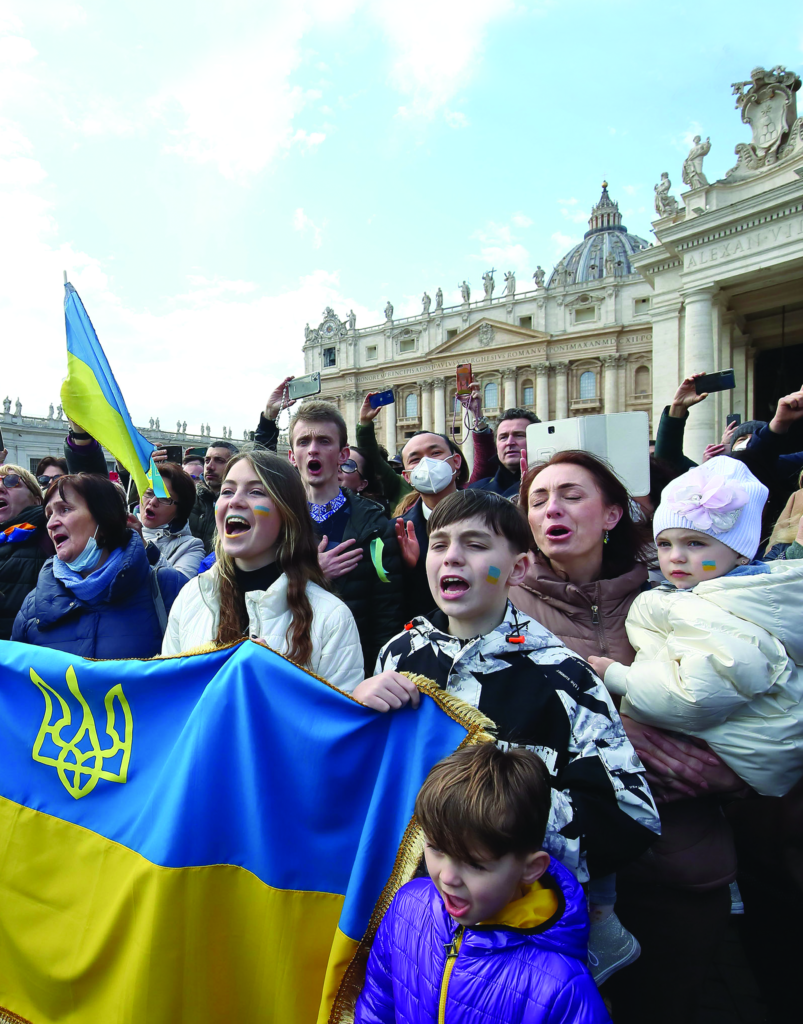
February 27, 2022, St. Peter’s Square. Angelus prayer presided over by Pope Francis from the window of his study in the Apostolic Palace. A group of Ukrainians who live in Italy with their families came to St. Peter’s Square to show their solidarity with their motherland Ukraine, as the war began on February 24, 2022. They await some words of comfort from the Pope
By Giacomo Gambassi (Avvenire)
In an interview, Archbishop Visvaldas Kulbokas, 48, apostolic nuncio to Kiev, speaks of a possible papal journey to the suffering country, and the superficial view of the Ukraine conflict around the globe. But, he notes, there are also those willing to launch a dialogue with Russia…
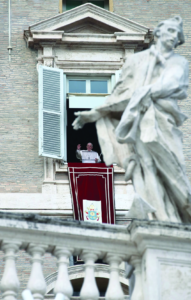 There is a Bible that the apostolic nuncio to Kiev keeps with particular care. He keeps it with him at the diplomatic seat of the Holy See which is housed in a yellow building in the heart of the Ukrainian capital. It is a burned Bible, found amidst children’s games in a building in Borodyanka, the town north of Kiev bombed in early March and occupied for a month by the Moscow army. It is not far from Bucha, where hundreds of bodies were found buried in mass graves.
There is a Bible that the apostolic nuncio to Kiev keeps with particular care. He keeps it with him at the diplomatic seat of the Holy See which is housed in a yellow building in the heart of the Ukrainian capital. It is a burned Bible, found amidst children’s games in a building in Borodyanka, the town north of Kiev bombed in early March and occupied for a month by the Moscow army. It is not far from Bucha, where hundreds of bodies were found buried in mass graves.
“Every time I look at it,” explains Archbishop Visvaldas Kulbokas, “I feel like crying, both for the suffering of the people and for the absurd fact that the whole of humanity is not united in condemning war. I am referring to Ukraine because we are here in Kiev. But it is valid for all conflicts around the world.”
A pause, then: “But another thing amazes me: it is the lightness, the superficiality with which the theme of war is approached in various nations. ‘Will Ukraine or Russia win?’ seems to be the only question. As if war were a game. We stop at the theoretical level, as if behind all this there are no victims, no wounded, no people on the run or traumatized… and the heart does not know what it means to pity.”
A 48-year-old native of Lithuania, Archbishop Kulbokas has been in Kiev for 10 months. And he is the only ambassador who has never left the capital since the Kremlin attack began. A statue of John Paul II welcomes those arriving at the nunciature. And the hypothesis that Pope Francis will visit Ukraine immediately comes to mind: “As Archbishop Gallagher, Secretary for Relations with States, said, the Pontiff is determined to come to Kiev: this is not an abstract project. Of course, the first important factor is that of his physical condition, which will be ‘tested’ in the upcoming trip to Canada.” We talk about August for the possible trip to Ukraine: “It is a period being taken into consideration, but there has been no date set,” says Kulbokas.
Excellency, in addition to Kiev, could Francis go to Moscow?
Archbishop Kulbokas: It is the Pope himself who repeated that he wanted to contribute personally to stopping the war. If a stop in Moscow were useful in this sense, the pontiff offered his full availability. As for the visit here, I would say it is a sign of closeness to the suffering people. And this is the best key to understanding the Pope’s desire to be among us.
Is Ukraine waiting for Francis?
Everyone is waiting for him. Not just the people. Not just Catholics. The authorities too: from President Zelensky to the Foreign Minister. Even the mayor of Kiev, Vitaliy Klitschko, officially invited him with a letter, as early as March.
How can security measures be ensured?
That is a complex matter. Just arriving in Ukraine by land alone is a difficulty. Then it is necessary to evaluate the modalities of the visit. An example: the government has just tightened the rules for compliance with missile warnings that are repeated almost daily. So public life is always subject to possible restrictions: you never know if at any given time or place you will be able to go, due to a possible alarm. It is true that in recent months there have been visits from some political leaders, but the Pope is not a politician.
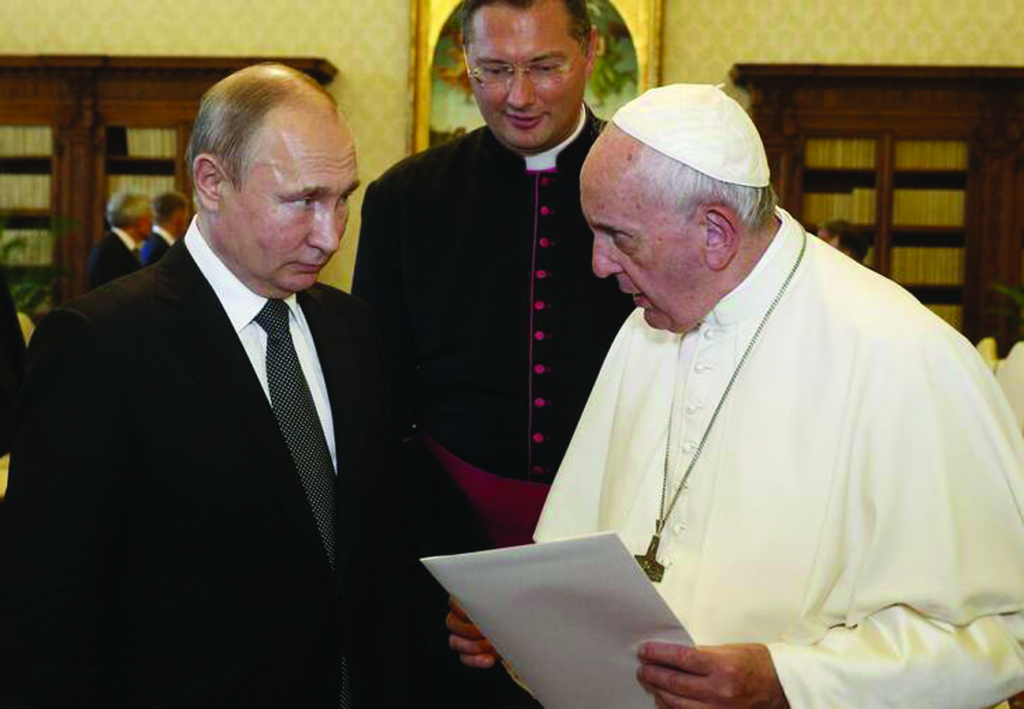
November 25, 2013, nine years ago — Monsignor Visvaldas Kulbokas is the interpreter for the meeting between Francis and Putin
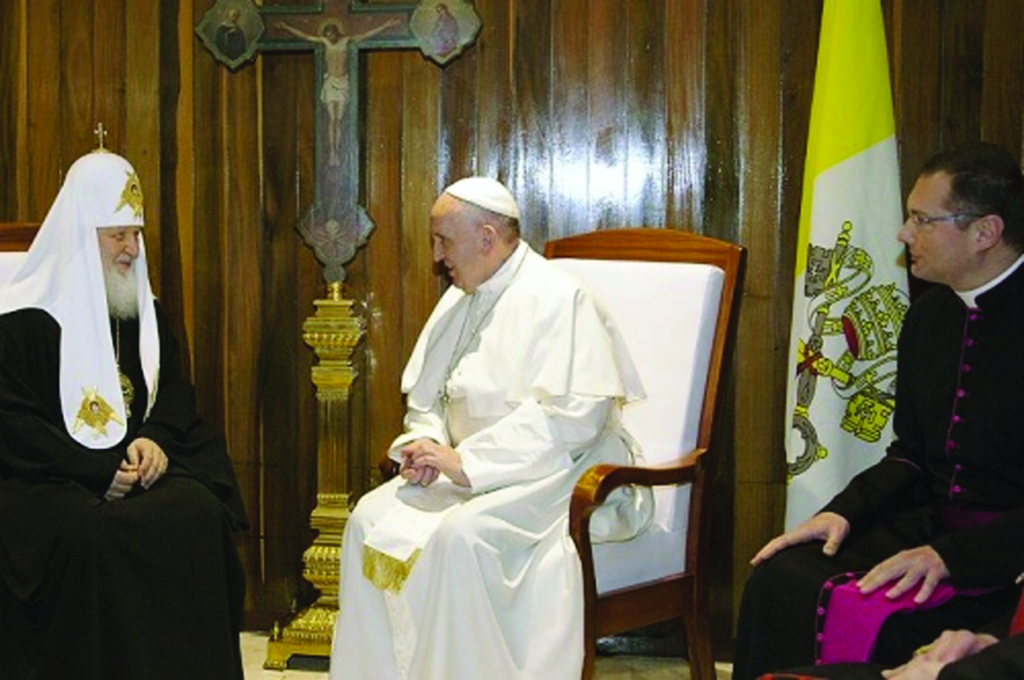
Middle, Kulbokas is the interpreter between Francis and Partriarch Kriill in Cuba on February 12, 2016, more than six years ago
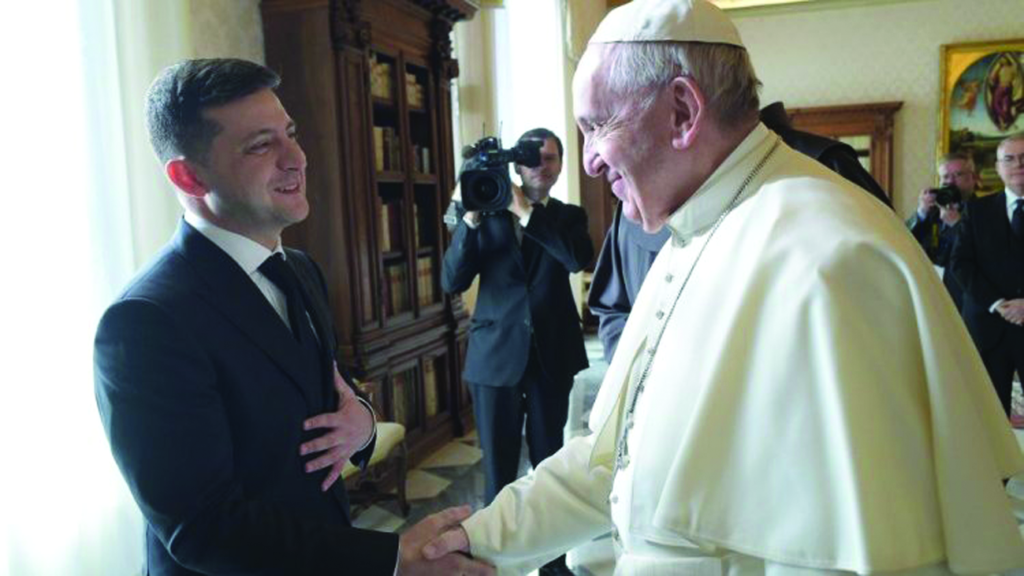
Below, February 8, 2020, Francis received President Zelensky
Maybe it will be a private visit…
It is always possible to imagine that the Holy Father will visit Ukraine by surprise, if we may say so, and that the news will be released the next day. But I don’t think that is the Pope’s intention.
Not a day goes by that Francis does not refer to the war in Ukraine, calling it a “massacre.”
These are much-appreciated words that testify to his great attention. Even if the Pope did not recall Ukraine so frequently, his concern and his pain for what is happening would still be perceptible. Of course, some in the country are complaining because they would like him to express an even more explicit stance. But apart from the Pope, no other public figure in the world has uttered such strong and clear words for our attacked people. Surely the language of the Pope is not a political language. Because his is a moral condemnation of war, but without making an appeal for some particular action. It is enough to listen to it to realize that the message is very clear; we just need intellectual honesty.
Why is it so difficult to arrive at the negotiating table?
That’s the big question. But another is necessarily connected: why did the war start? When someone still chooses war in the 21st century as a means to achieve their own goals, they show little willingness to negotiate. In this regard, the prayer of St. Stephen before being martyred comes to mind: “Lord, do not impute this sin to them.”
Can Vatican diplomacy bring Ukraine and Russia closer?
The Holy See, being neither a political nor a military power, has only words, and its own complete availability, as tools. They are humble means. When Vatican mediation is deemed to be useful, the Holy See will be there. However, the more time passes, the more the conflict risks becoming gangrenous. But I remain convinced that the Holy See can help us focus on the moral realities of war — not only from a military and political point of view, but from a human one. Therefore, it will be an essential factor in getting out of this impasse.
In any case, there are very capable political mediators. I mention Turkey: even though it has not led to decisive results, its role is incisive.
The Orthodox Patriarch of Moscow, Kirill, has come out in favor of the attack. Does war divide believers?
As a Christian I say that we are all part of one Church of Christ: juridically, no, but spiritually, yes. And when conflicts arise between one or more brothers, the consequences fall on everyone. Today the difficulties are enormous and it will not be easy to get out of them. But they must be faced with the awareness that, on the one hand, clarity is needed on some fundamental aspects, such as the sacredness of human life, but, on the other, we must not give in to the temptation to become judges of each other, in order not to enter into a whirlwind of mutual condemnations.
You met the Italian “peacemakers” who arrived in Kiev with the European Movement of Nonviolent Action. Can Ukraine be supported other than with weapons?
Nonviolence is the way to peace that is not built only in words but with concrete actions. So I appreciated the path of the Italian delegation that came here to listen to the suffering of the people, without proposing pre-established solutions or wanting to interfere with the choices made by the Ukrainian people and their government, and also because the right to defense against an aggressor is legitimate, at least in the Catholic conception.
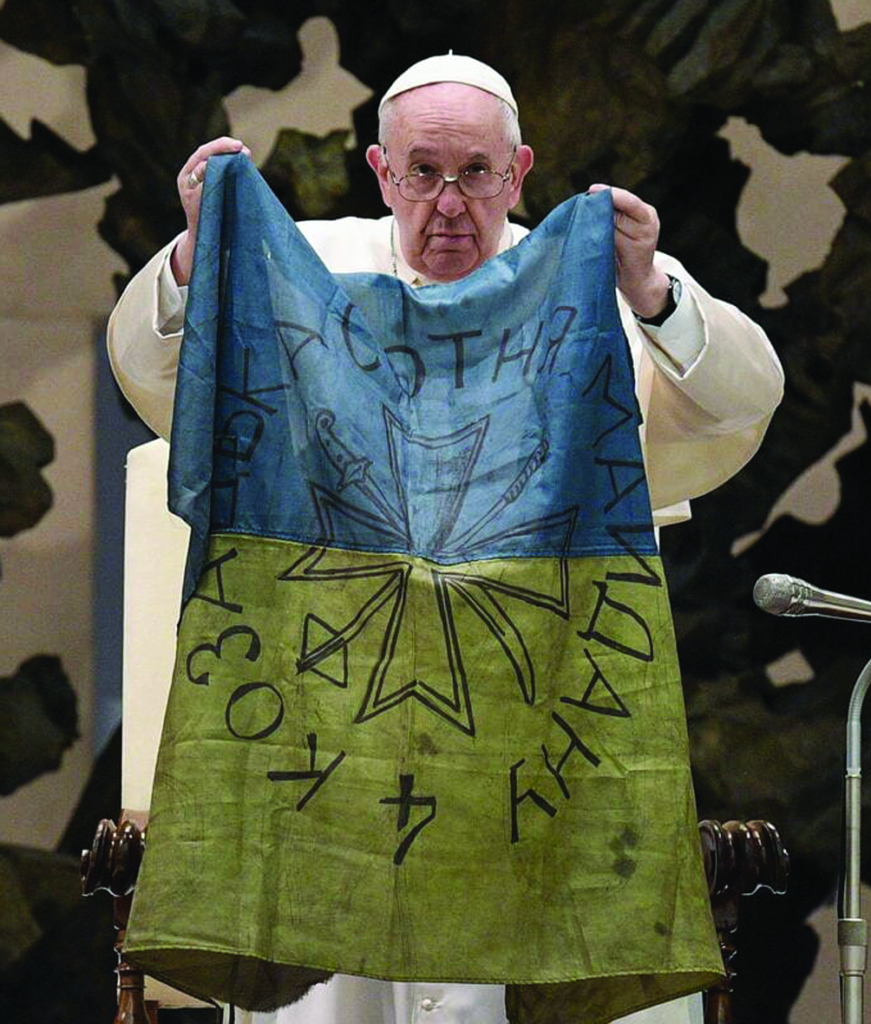
Pope Francis, on April 6, 2022, at the Paul VI Audience Hall, holding a Ukrainian flag. The Pope denounced the atrocities of the war
Ukraine has banned Russian culture. Is that excessive?
It is understandable, even if not entirely justifiable, that war provokes reactions, even on a cultural level. This is one more argument for repeating that wars must not even be started. But the faith communities in Ukraine have been the first to urge everyone not to demonize everything Russian. The Council of Churches, which indeed called out the aggressor by name, also asked everyone to avoid disparaging attitudes and words. Even the aggressor continues to be looked at with human eyes; dehumanizing the other would be a further defeat for all.
Of course, I have noticed now that when Russian is spoken or Russian music is being played, there is an immediate mental association that connects Russian culture to what its government is doing, and it feeds the pain. I also know Ukrainian families who have up to now only spoken Russian, but are now spontaneously switching to Ukrainian. This shows how much the war causes wounds that will take years to heal.
Europe has started the procedure for Ukraine’s entry into the EU. What does this mean?
Ukraine brings with it many peculiarities. I cite the example of the Catholic Church, which in Ukraine is present with an oriental rite, the Greek-Catholic one, and with the Latin rite. I believe that in the European family, the Ukrainian nation becomes the bearer of significant wealth. And then, as a Ukrainian official who is also a philosopher likes to point out, Ukraine is part of “Central Europe,” not Eastern Europe. Because beyond Ukraine there is still Europe.
It is a Europe from the Atlantic to the Urals, according to Giorgio La Pira… which also includes Russia?
It was last March, shortly after the start of this large-scale aggression, when some members of Ukrainian civil society came to see me and announced that they would begin to work towards establishing new Ukrainian-Russian relations. Because only with friendship, dialogue and knowledge can we have a better future. And these are people who condemned the Russian attack and strongly reaffirmed that the country must be protected. But at the same time they are looking for new ways to conceive the world as a family of nations.
(This interview originally appeared in Italian on avvenire.it.)
Archbishop Kulbokas, fluent in five languages, traveled with two Popes
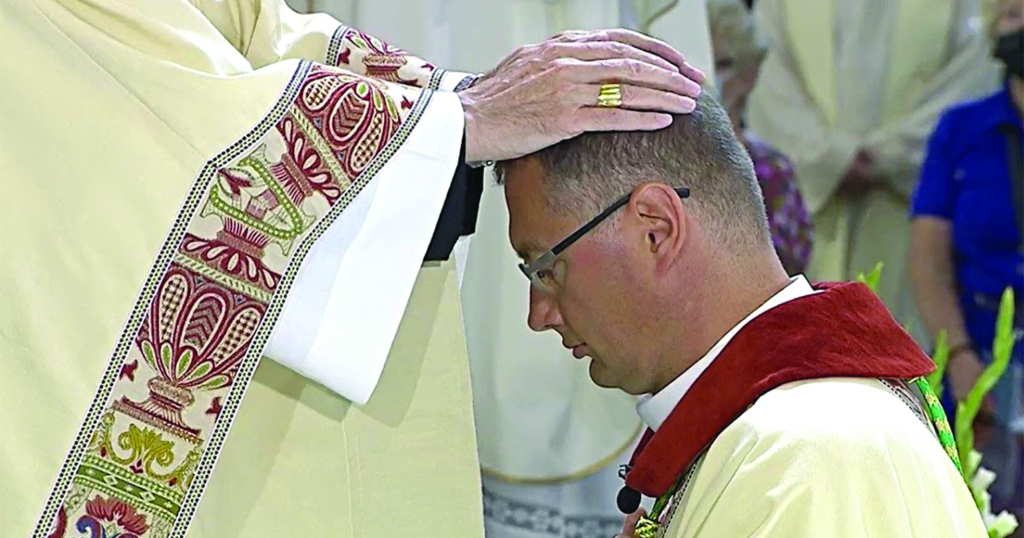
The moment when Kulbokas was consecrated a titular archbishop on August 14, 2021, at the Vatican, by Cardinal Secretary of State Pietro Parolin.
Born in 1974 in Lithuania’s third-largest city and its only major seaport, Klaip da, Visvaldas Kulbokas in 1992 entered the Telšiai Bishop Vincentas Borisevičius Seminary. From 1994 to 2004 he studied in Rome, Italy, at the Pontifical University of the Holy Cross, where he received a doctorate in theology (2001) and a Licentiate of Canon Law (2004). He was ordained to the priesthood for the Diocese of Telšiai on July 19, 1998.
To prepare for a diplomatic career, he entered the Pontifical Ecclesiastical Academy in 2001. He joined the Vatican’s diplomatic service in 2004 and was posted to the nunciatures in Lebanon (2004–07), the Netherlands (2007-09) and Russia (2009–12). He worked in the Section for Relations with States of the Secretariat of State of the Holy See (2012-20), and was then sent to Kenya as an adviser to the nunciature there (2020-21).
On June 15, 2021, Pope Francis appointed him Titular Archbishop of Martanae Tudertinorum and Apostolic Nuncio to Ukraine — the sixth in the modern Ukrainian state.
Kulbokas speaks English, French, Italian, Russian and Spanish. In 2018, then-Fr. Kulbokas traveled with Francis on his apostolic visit to the Baltic countries; he had made a similar trip with Pope John Paul II back in 1993, when he was still a seminarian, just after the Baltic nations had been liberated.

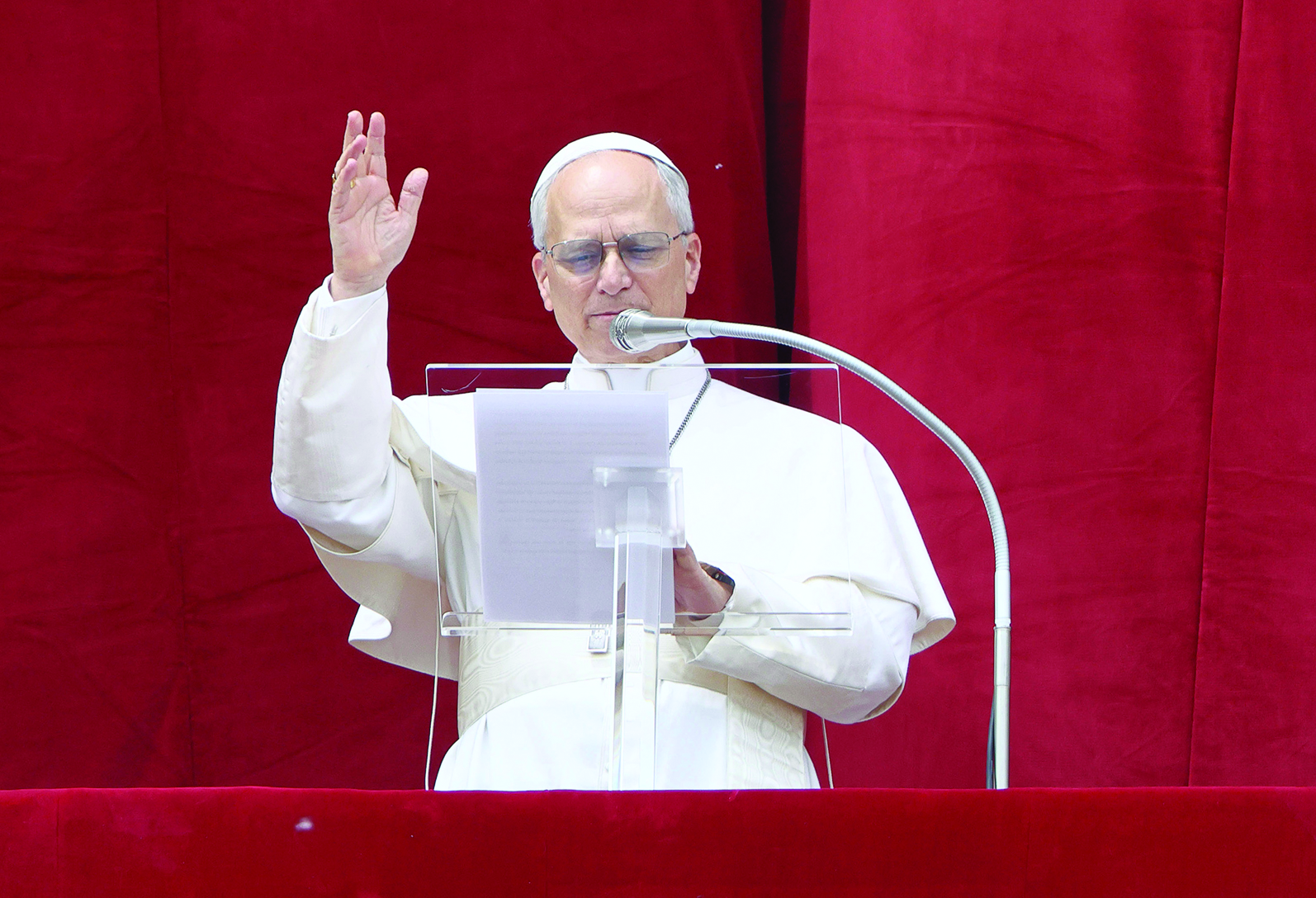
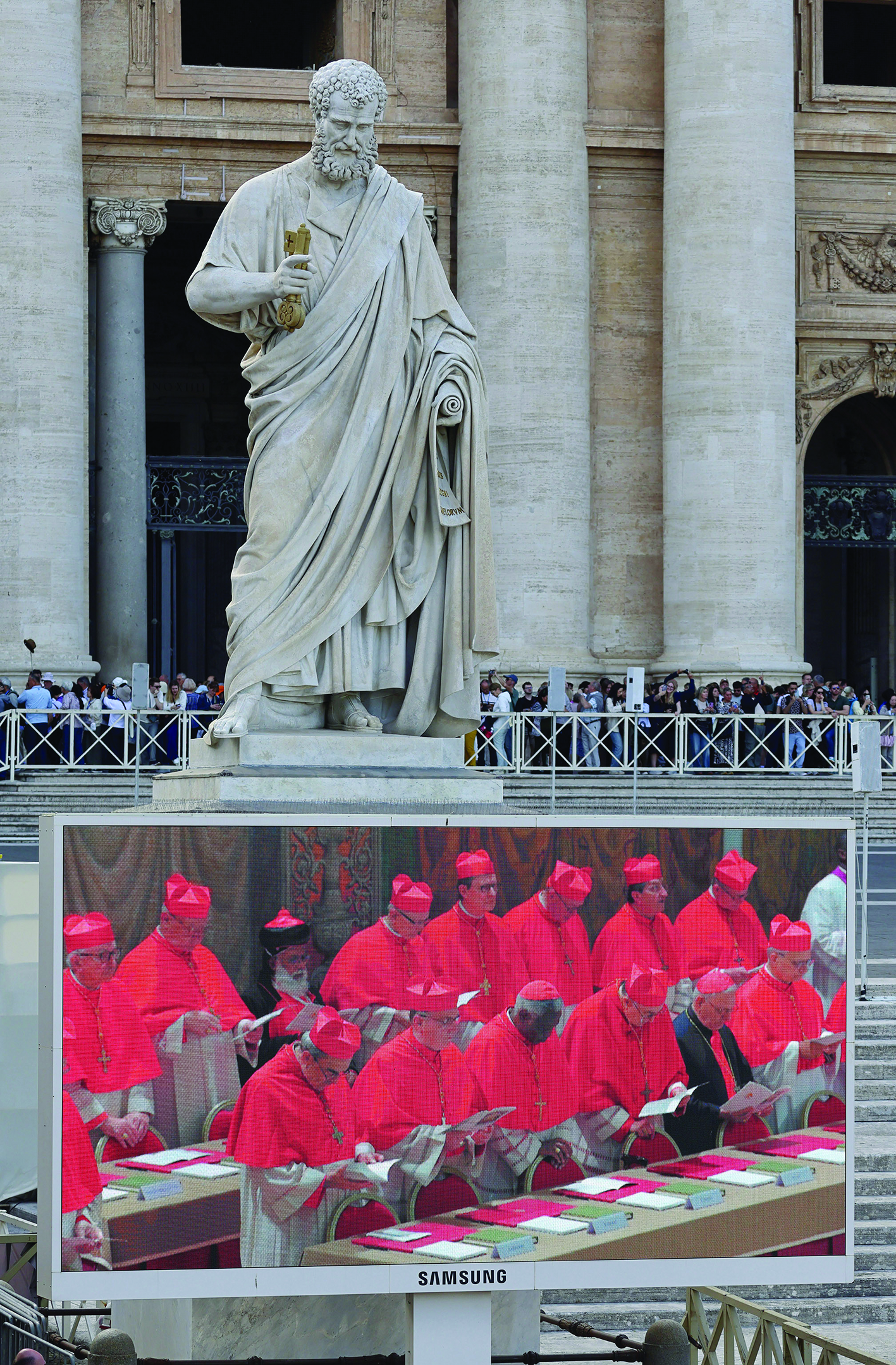
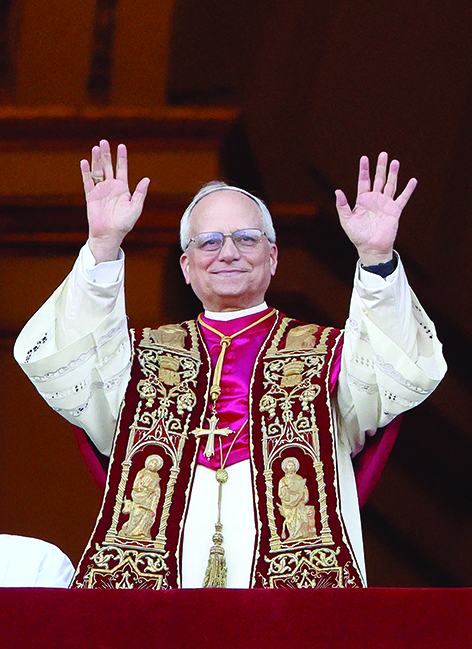
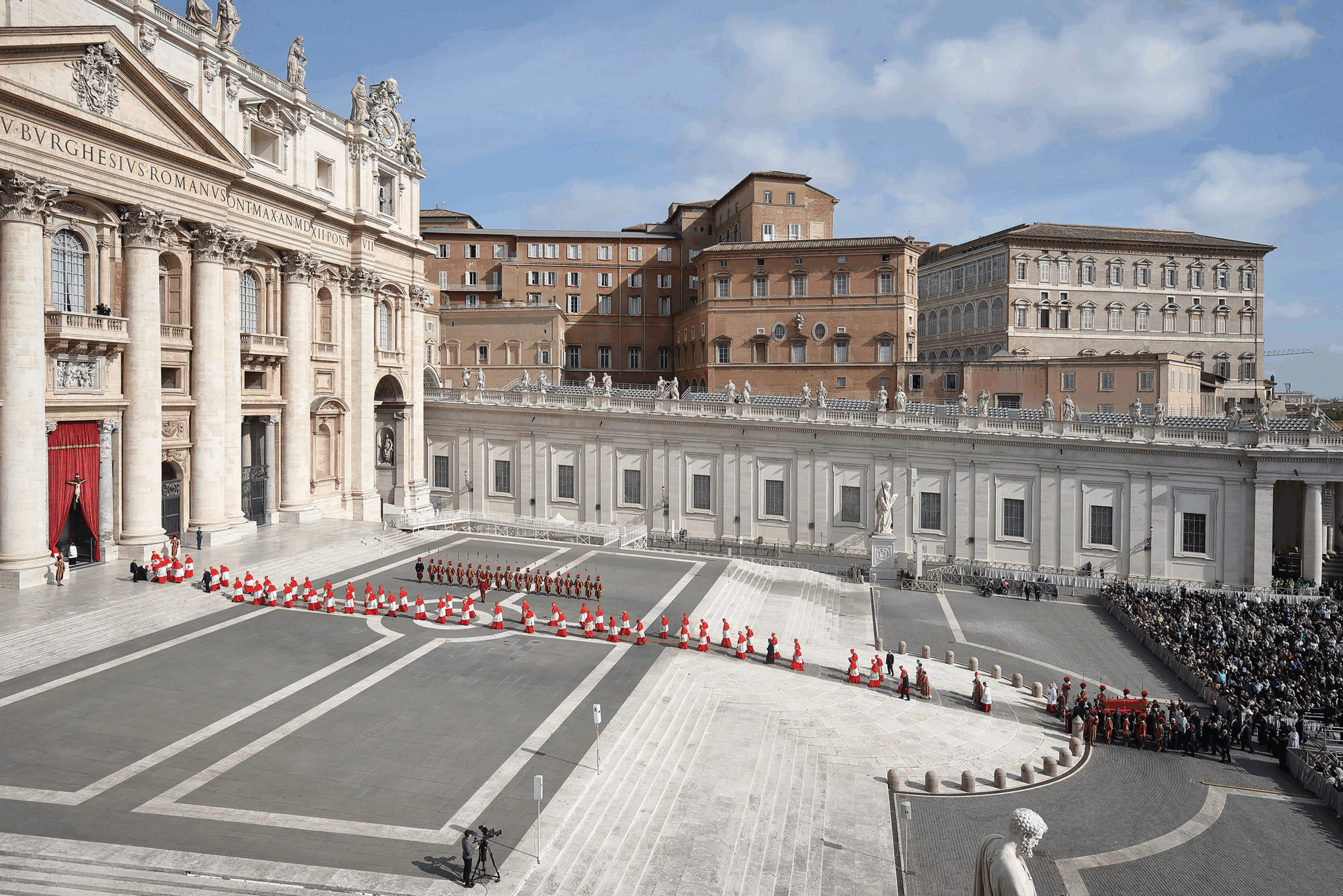
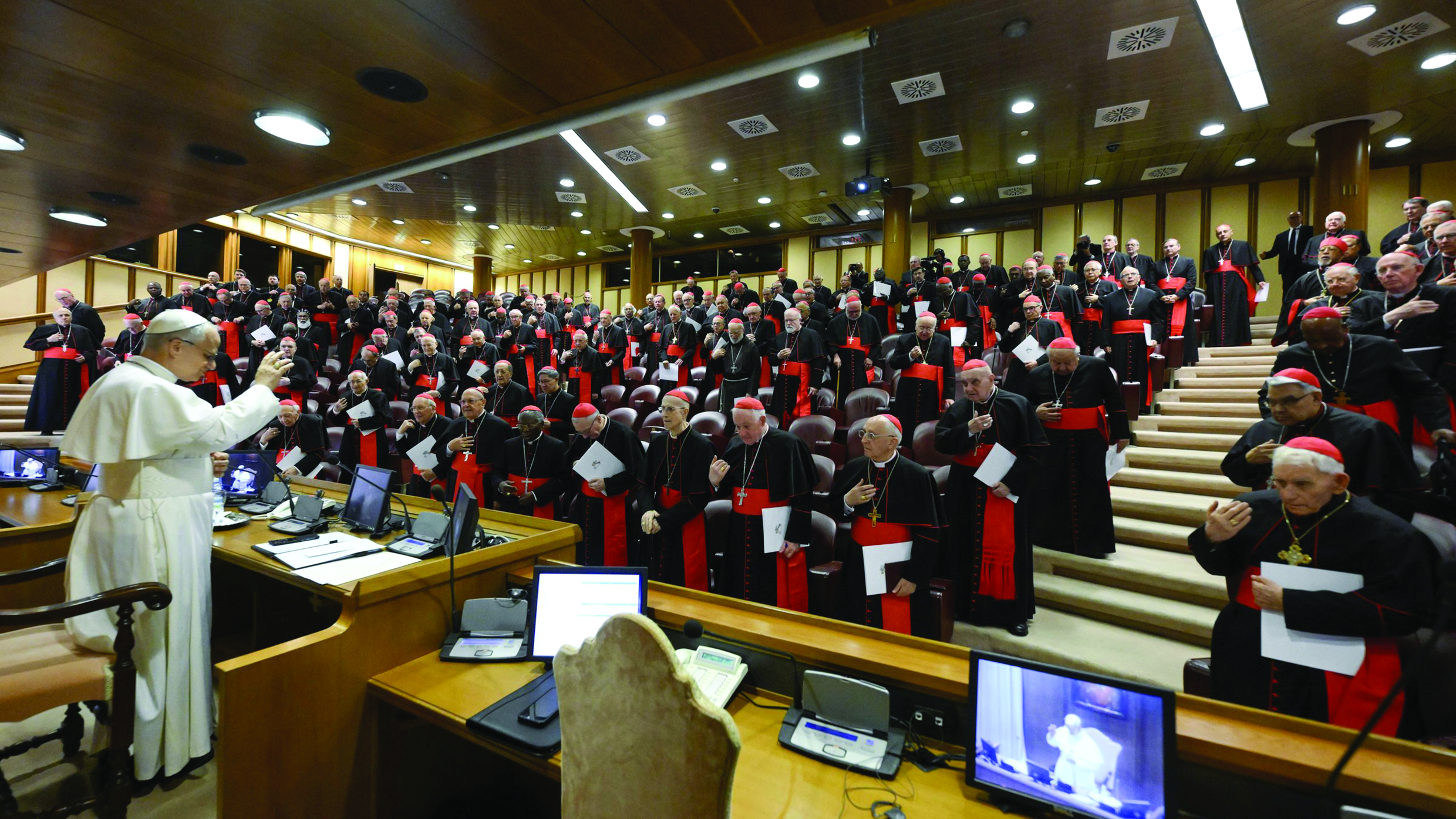
Facebook Comments